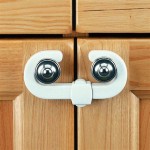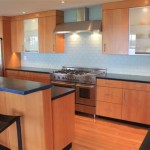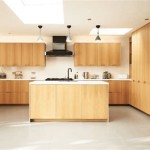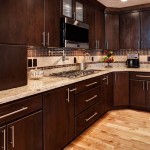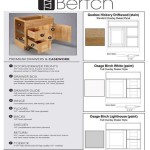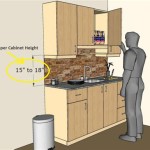Kitchen Cabinet Base Moulding: Essential Aspects to Consider
Kitchen cabinet base mouldings hold immense significance in enhancing the aesthetics and functionality of your kitchen space. They provide a realm of design possibilities, helping you achieve that perfect balance between style and practicality. Understanding the various aspects associated with base mouldings is key to making well-informed choices that align with your aesthetic sensibilities and overall design vision.
In this comprehensive guide, we'll delve into the essential aspects of kitchen cabinet base mouldings, illuminating their significance and empowering you to make discerning decisions that elevate the beauty and efficiency of your kitchen.
Size and Shape
The size and shape of the base moulding can significantly impact the overall look of your kitchen cabinets. Smaller mouldings, typically ranging from 1 to 2 inches in height, lend a subtle and understated elegance to your cabinetry. Broader mouldings, on the other hand, boasting heights of 3 inches or more, create a more dominant presence, adding a touch of grandeur and sophistication to your kitchen design.
Similarly, the shape of the moulding plays a crucial role in shaping the visual appeal of your cabinets. Cove mouldings, with their gentle curves, exude a classic charm, while ogee mouldings, featuring two curves separated by a straight line, provide a more intricate and eye-catching touch. Consider the overall style of your kitchen and the desired aesthetic effect when choosing the size and shape of your base moulding.
Material
The material of the base moulding is another important factor to consider. Wood, known for its warmth and natural beauty, is a popular choice for kitchen cabinet mouldings. It can be stained or painted to match the existing cabinetry or create a unique accent. MDF (medium-density fiberboard) is another cost-effective option that offers versatility in terms of shape and design. It is often used to create intricate mouldings with intricate details.
PVC (polyvinyl chloride) mouldings are durable and resistant to moisture, making them a suitable choice for kitchens with high humidity levels. They come in a range of finishes, including white, black, and wood grain, providing ample options to complement your kitchen decor.
Style and Design
The style and design of the base moulding should complement the overall aesthetic of your kitchen cabinets. Traditional mouldings, characterized by intricate carvings and ornate details, evoke a sense of timeless elegance. Modern mouldings, on the other hand, often feature sleek lines and simple profiles, creating a contemporary and minimalist look.
Consider the architectural style of your home and the existing cabinetry when selecting the style of base moulding. Matching the moulding style to the overall design of your kitchen ensures a harmonious and cohesive aesthetic.

What Is Furniture Base Molding For Cabinets And How To Use It

10 Types Of Kitchen Cabinet Molding For Your Home

Diy Kitchen Update Cabinet Trim Tutorial Domestic

Adding Moldings To Your Kitchen Cabinets Remodelando La Casa

Easy And Inexpensive Cabinet Updates The 15 Minute Fix Adding Trim To Bottom Of Cabinets Rozy Home Kitchen Update

Adding Molding To Cabinets Make Them Look Built In Young House Love

7 Types Of Cabinet Moldings And How To Use Them Properly

How To Get A Custom Cabinet Look Using Trim Sincerely Marie Designs

Diy Cabinet End Panels With Shaker Style Trim Average But Inspired

How To Add Molding Cabinets For A Gorgeous Finish Inspiration Moms

